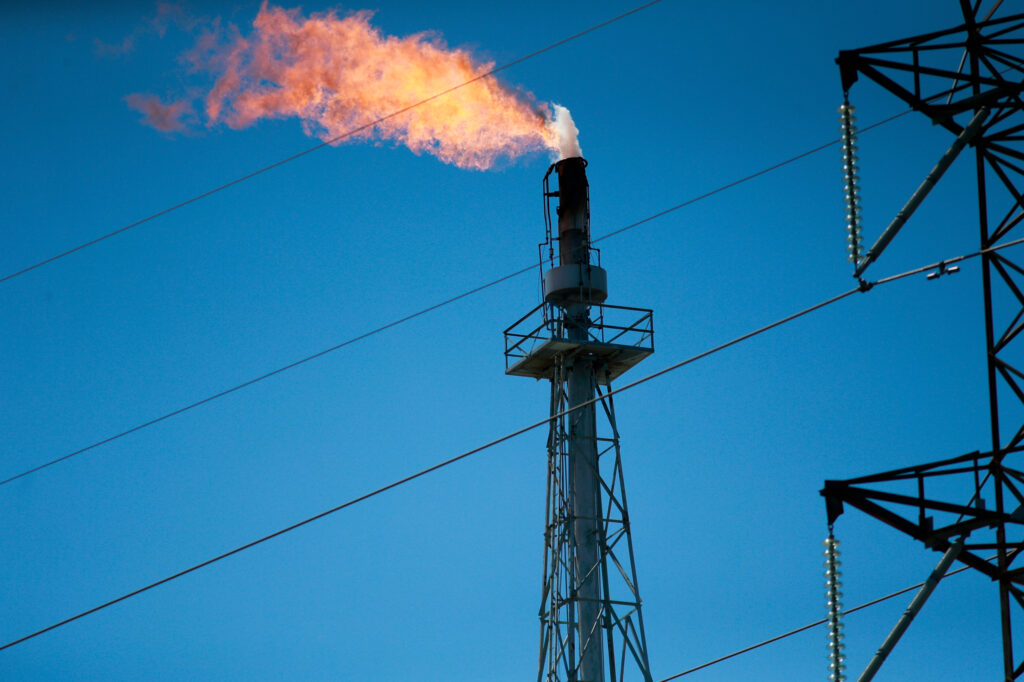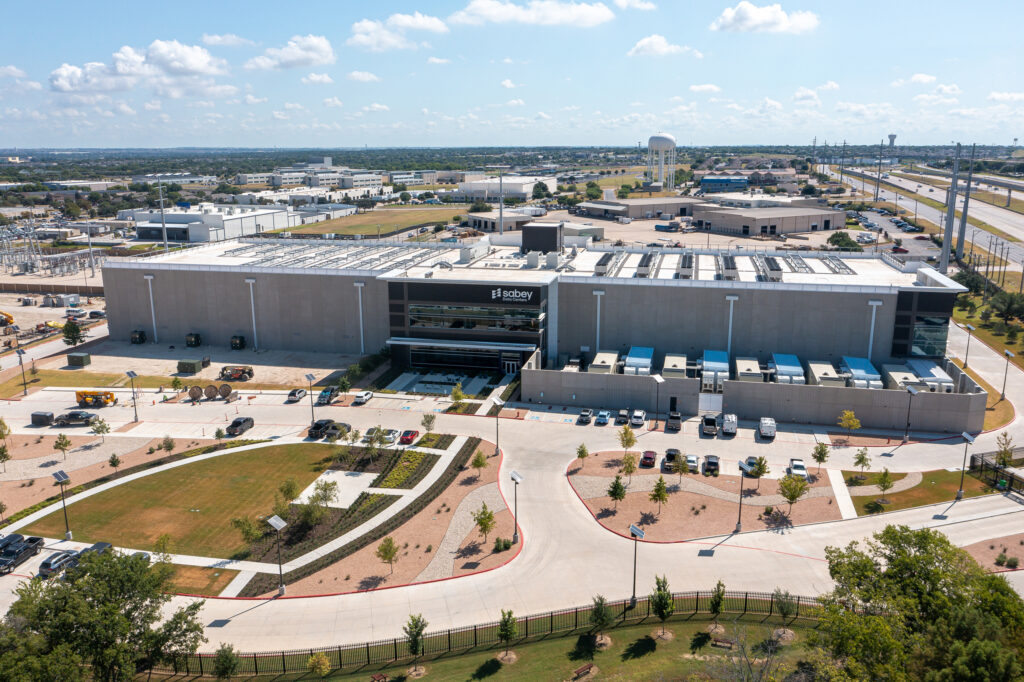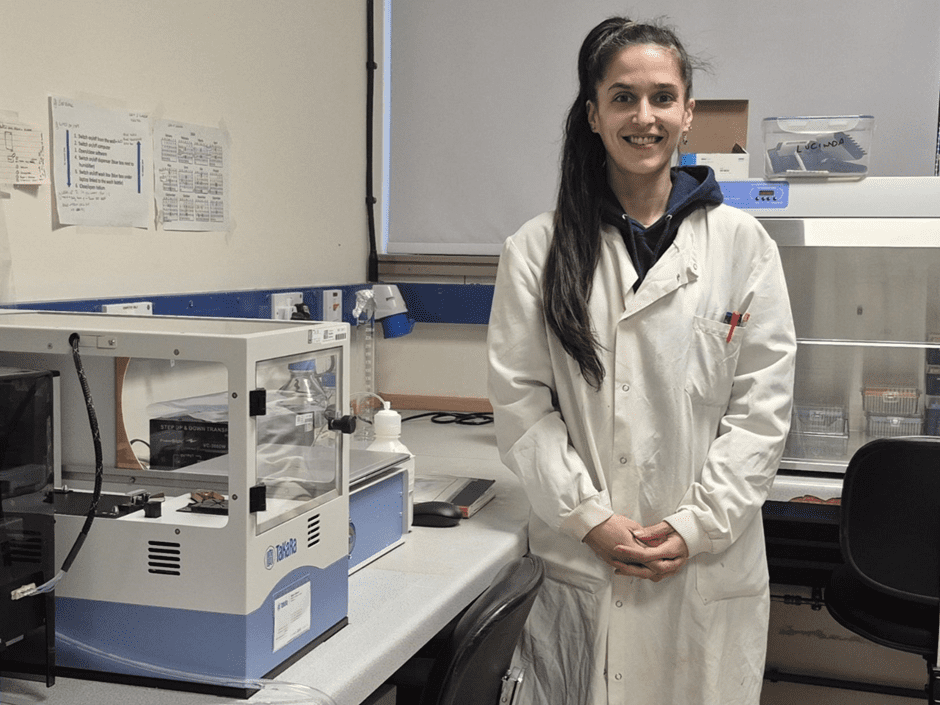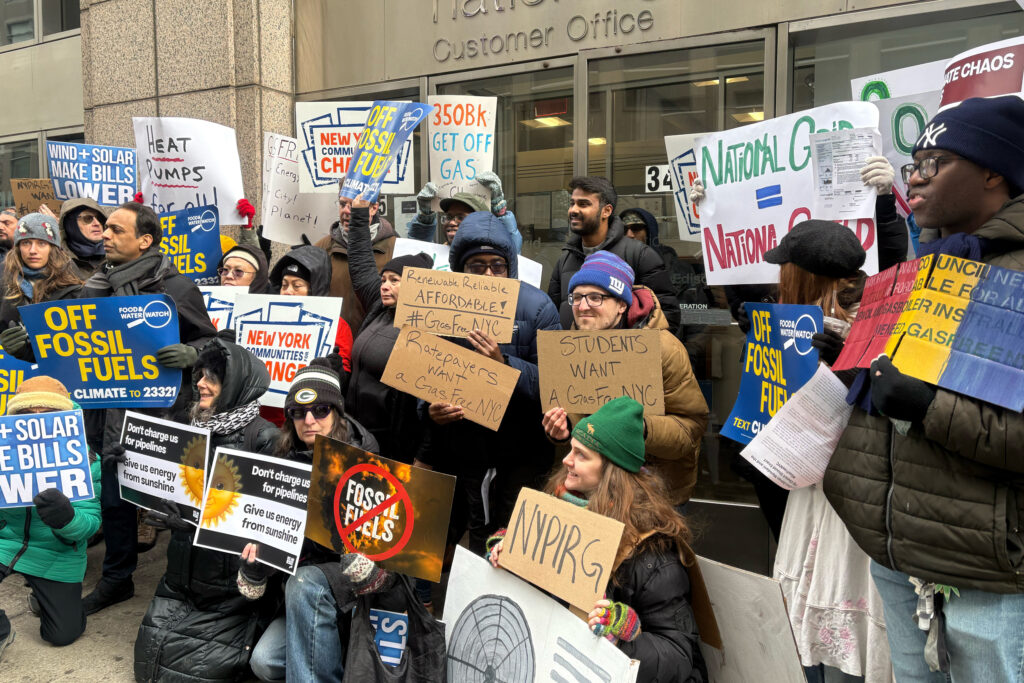RICHMOND, Va.—Democrats gained trifecta control of Virginia state government Tuesday night as former congresswoman Abigail Spanberger trounced Republican Winsome Earle-Sears by 15 points in the governor’s race and the party flipped a whopping 13 seats in the House of Delegates.
The party’s lead in the legislature’s lower chamber will move from a narrow 51-48 margin to 64-36. Its current 21-19 majority in the Senate will hold until the next election in 2027, meaning that Democrats will have a virtually unfettered opportunity for two years to protect the state’s ambitious climate law, the Virginia Clean Economy Act, and more aggressively pursue the transition to renewable energy.
“Things are going to move fast,” said Lee Francis, chief program and communications officer of the Virginia League of Conservation Voters, recalling the 2020 and 2021 legislative sessions, when Democrats last had trifecta control.
During that time, lawmakers passed the Clean Economy Act, which seeks to decarbonize the state’s electric grid by mid-century. When the law was passed in 2020, little increased demand in electricity was forecasted—but how things have changed.
Come January, Spanberger and legislative Democrats must figure out how they will meet surging demands from AI-driven data centers without shredding the VCEA’s emissions reduction targets. Simultaneously they must deal with growing community opposition to the massive server farms in Northern Virginia and solar spreading across farmland in the state’s rural areas.
Dominion Energy, Virginia’s largest utility, had a demand growth from data centers of 3.5 gigawatts in 2024. The utility said by the end of July it had 47 gigawatts worth of data center requests seeking power over a four- to seven-year process.
Can the Democrats possibly adhere to provisions in the VCEA to retire carbon-emitting generation sources while bringing that much new power online in Virginia, which already has more data centers than any other place on earth?
Read More

Green Groups’ Election Takeaway: Focus on Trump Energy Agenda Costs
By Marianne Lavelle
“We’re going to lower costs and we’re going to do it by producing more energy here in Virginia,” Spanberger said during her acceptance speech on election night.
Asked what kind of energy Spanberger meant, a spokesperson didn’t respond. Previously, Spanberger told Inside Climate News she was comfortable with current natural gas power plants but would cast a critical eye on new gas infrastructure, while wanting to advance renewables.
House Speaker Don Scott (D-Portsmouth) also declined on Wednesday to answer what will happen with the VCEA, but said at a press conference, “we have to be wise moving forward” with trifecta control.
“It’s going to be important for us and our coalition that’s restrained, that’s smart, that’s disciplined and focused on what voters want us to do,” Scott said. Sen. Majority Leader Scott Surovell (D-Fairfax) said in an interview, “We’re just starting to evaluate options,” but did not dismiss the idea that fossil fuel restrictions may have to be eased.
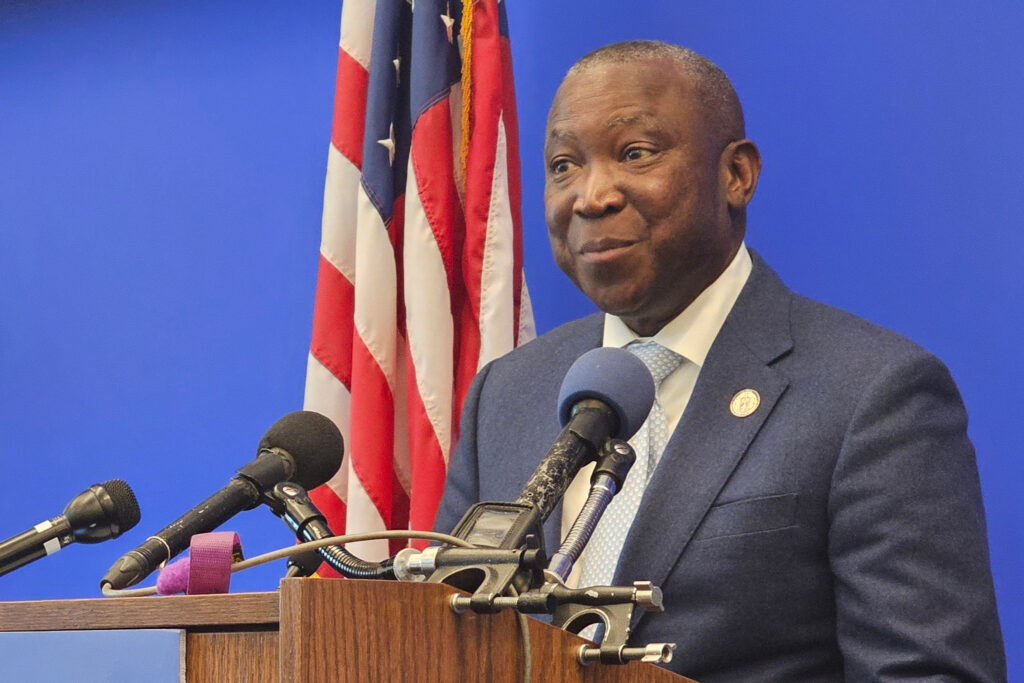

In its long-term planning document, Dominion wants to use natural gas to meet growing data center demand. The utility has heavily funded the campaigns of Scott, Senate leadership and political action committees funding numerous other Democratic legislative candidates.
The State Corporation Commission, which regulates Virginia’s utilities, is weighing a request from Dominion to build a new gas plant in Chesterfield County, the first since passage of the VCEA. A denial from the regulators could mean the utility would need to ask the legislature to ease the law’s fossil fuel restrictions, according to environmental advocates. Dominion did not immediately respond to a request for comment, but prior to the elections said it intended to keep pursuing “an all of the above approach,” which is another way of saying continued use of gas.
Francis said the League of Conservation Voters would have serious problems with any easing of the fossil fuel restrictions without a “deeper commitment” to renewable energy. The group is committed to Virginia being 100 percent carbon-free by 2045, he said.
The issue is compounded by tension within the environmental community and the Democratic Party. Clean Virginia, an advocacy group funded by Charlottesville millionaire Michael Bills to counter Dominion’s influence, and the League of Conservation Voters backed several of the progressive candidates who took seats from Republicans on Tuesday. They are not likely to support increased use of fossil fuels to power the exploding data-center sector.
This story is funded by readers like you.
Our nonprofit newsroom provides award-winning climate coverage free of charge and advertising. We rely on donations from readers like you to keep going. Please donate now to support our work.
Donate Now
“We’re really proud of the Virginia Clean Economy Act, which drives to 100 percent cleaner, cheaper energy over the next 20 years. We’re really glad to have a governor that’s going to help put that in practice,” said Del. Dan Helmer (D-Fairfax Station), who organized House Democrats’ campaigns. “The Virginia Clean Economy Act is going to be strong. … We’re very excited about it.”
On the Senate side, Sen. Danica Roem (D-Prince William County), an ardent critic of data center sprawl, said, “There are going to be negotiations of the leadership regarding that. I am dead set against the weakening of the VCEA.”
Clean Virginia said in a statement that the results are a “decisive mandate for clean, affordable, reliable energy and accountable government.”
“For the first time, every statewide office and the majority of the House of Delegates will be held by leaders who do not accept money from Virginia’s monopoly utilities,” said Brennan Gilmore, Clean Virginia’s executive director. “That marks a sea change in Virginia politics and a clear rejection of the pay-to-play system that has dominated Richmond for decades.”
The alternative is to reign in data center development and build out clean energy options, he said.
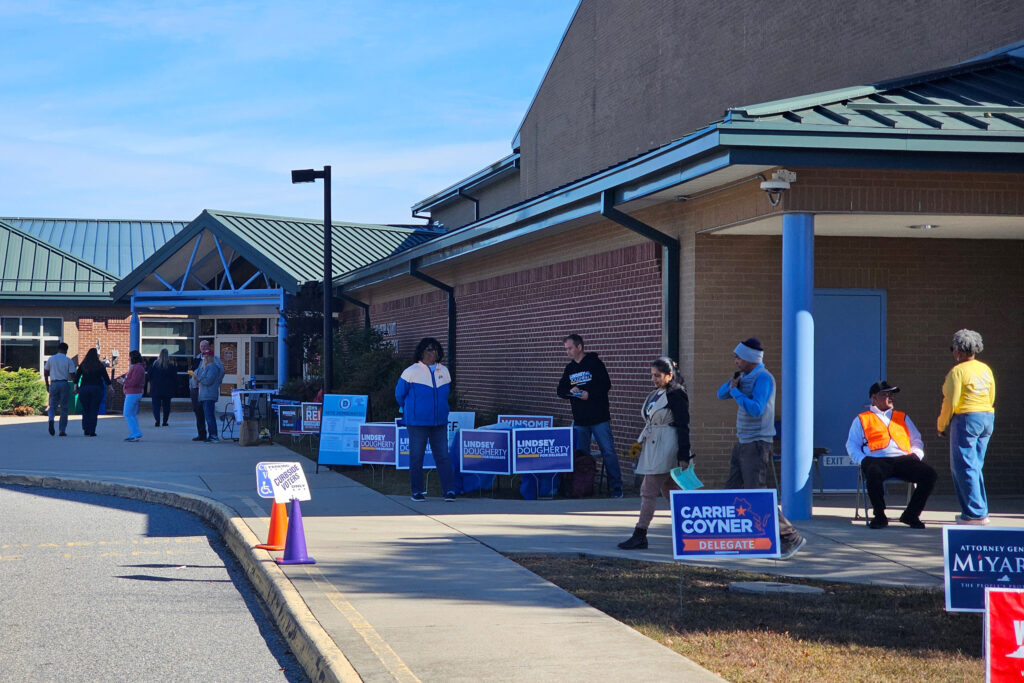

Spanberger has said she’s watching what the State Corporation Commission does in Dominion’s latest rate case to determine if legislative action is needed. In the rate case, Dominion is seeking to assign more electricity costs to data centers so that consumers are not stuck with costs for grid upgrades necessary to accommodate the server farms.
Three House of Delegates seats across Loudoun and Prince William counties, where data center development has made Virginia the “data center capital of the world,” went to candidates campaigning on data center development reforms.
Sen. Ghazala Hashmi (D-Chesterfield), who was elected lieutenant governor, has said the problem is more about how big and how quickly the data center industry wants to build in Virginia, rather than meeting clean energy goals.
“I think it’s safe to say that the single greatest threat to our clean energy goals is not the lack of resolve or purpose or goals, but rather it is the sheer speed and the size of what is coming at us,” Hashmi said at the Virginia Clean Energy Summit in October. “We do have pragmatic actionable steps that are focused on the results in front of us. I would ask that we accelerate what is working.”
After legislators punted on nearly 30 bills this past session intended to control data center development, Roem said “the onus is on us” to act now.
Chris Miller, with the Piedmont Environmental Council, which works to preserve Virginia’s countryside, said the election’s results made it clear that lawmakers need to “take a hard look” at the impact of data center development.
A senior attorney at the Southern Environmental Law Center, which represents environmental groups in Dominion rate cases, said his group is looking for “smart growth” in data centers, and “easing the fossil fuel restrictions in the VCEA would only help pad corporate profits. It would be terrible for Virginians.
“We need to make sure communities are on board and that we can power this industry in a way that’s good for Virginians,” said Nate Benforado, the senior attorney. “If we aren’t proactive, and let utilities go all-in on a risky gas buildout, energy bills will skyrocket, air pollution will increase, and our communities will be put in harm’s way—all for an industry that could be in the middle of a market bubble.”
To provide clean energy, Democrats are seeking to reintroduce bills seeking to increase small solar and battery storage developments that the state’s term-limited Republican governor, Glenn Youngkin, has vetoed. Instead of an overhaul of how localities review solar and storage projects that was defeated last year, Democrats say they are now formulating legislation that would establish a uniform set of standards for locating solar farms in suburban and rural areas.
With the Democratic trifecta, Virginia could also move to rejoin the Regional Greenhouse Gas Initiative, a carbon market that produced millions of dollars in carbon fees from utilities for flood preparedness and energy efficiency programs in Virginia before the state pulled out. Youngkin opposed RGGI membership as a tax on consumers.
Virginia could also choose to again adopt clean car standards out of California that ban the sale of new gas-powered vehicles beginning in 2035, although President Donald Trump is now trying to repeal those rules.
And while the current Republican attorney general, Jason Miyares, has backed withdrawing from RGGI and the clean car standards and challenged the Biden administration’s clean air policies, the Democrat who defeated Miyares in the election, Jay Jones, has said he’ll take on corporate spending and the Trump administration.
About This Story
Perhaps you noticed: This story, like all the news we publish, is free to read. That’s because Inside Climate News is a 501c3 nonprofit organization. We do not charge a subscription fee, lock our news behind a paywall, or clutter our website with ads. We make our news on climate and the environment freely available to you and anyone who wants it.
That’s not all. We also share our news for free with scores of other media organizations around the country. Many of them can’t afford to do environmental journalism of their own. We’ve built bureaus from coast to coast to report local stories, collaborate with local newsrooms and co-publish articles so that this vital work is shared as widely as possible.
Two of us launched ICN in 2007. Six years later we earned a Pulitzer Prize for National Reporting, and now we run the oldest and largest dedicated climate newsroom in the nation. We tell the story in all its complexity. We hold polluters accountable. We expose environmental injustice. We debunk misinformation. We scrutinize solutions and inspire action.
Donations from readers like you fund every aspect of what we do. If you don’t already, will you support our ongoing work, our reporting on the biggest crisis facing our planet, and help us reach even more readers in more places?
Please take a moment to make a tax-deductible donation. Every one of them makes a difference.
Thank you,








